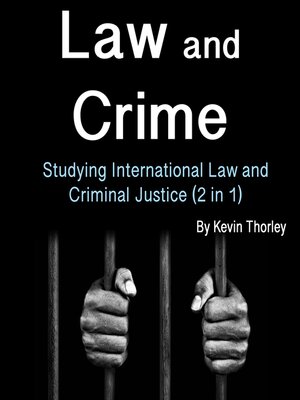Law and Crime
audiobook (Unabridged) ∣ Studying International Law and Criminal Justice (2 in 1)
By Kevin Thorley

Sign up to save your library
With an OverDrive account, you can save your favorite libraries for at-a-glance information about availability. Find out more about OverDrive accounts.
Find this title in Libby, the library reading app by OverDrive.



Search for a digital library with this title
Title found at these libraries:
| Library Name | Distance |
|---|---|
| Loading... |
This book consists of two titles, which are:
1 - International Law: International law is a complex system that governs relations between states and other international actors. It derives from several key sources, with treaties, customary international law, and general principles of law being the primary ones. Here's an overview of these sources:
Treaties are formal agreements between states or international organizations. They are the most explicit source of international law and are binding on the parties that have ratified them. Treaties can be bilateral (between two parties) or multilateral (involving multiple parties). Examples include the United Nations Charter, the Geneva Conventions, and various human rights treaties. The Vienna Convention on the Law of Treaties governs how treaties are made, interpreted, and terminated.
2 - Criminal Justice: The key processes in the criminal justice system are investigation, arrest, prosecution, pretrial, trial, sentencing, corrections, and reentry. Investigation involves law enforcement investigating a crime, gathering evidence, and identifying suspects. Arrest involves taking suspects into custody based on probable cause. Prosecution involves prosecutors reviewing evidence, deciding on charges, and filing them in court. Pretrial includes bail hearings, plea bargaining, and preliminary hearings. Trial is a court proceeding to determine the guilt or innocence of the accused, including opening statements, witness testimonies, and closing arguments. Sentencing involves a judge determining the sentence for a convicted offender. Corrections involve offenders serving their sentences in correctional facilities or through community-based programs. Reentry involves programs to help former inmates reintegrate into society, aiming to reduce recidivism.







